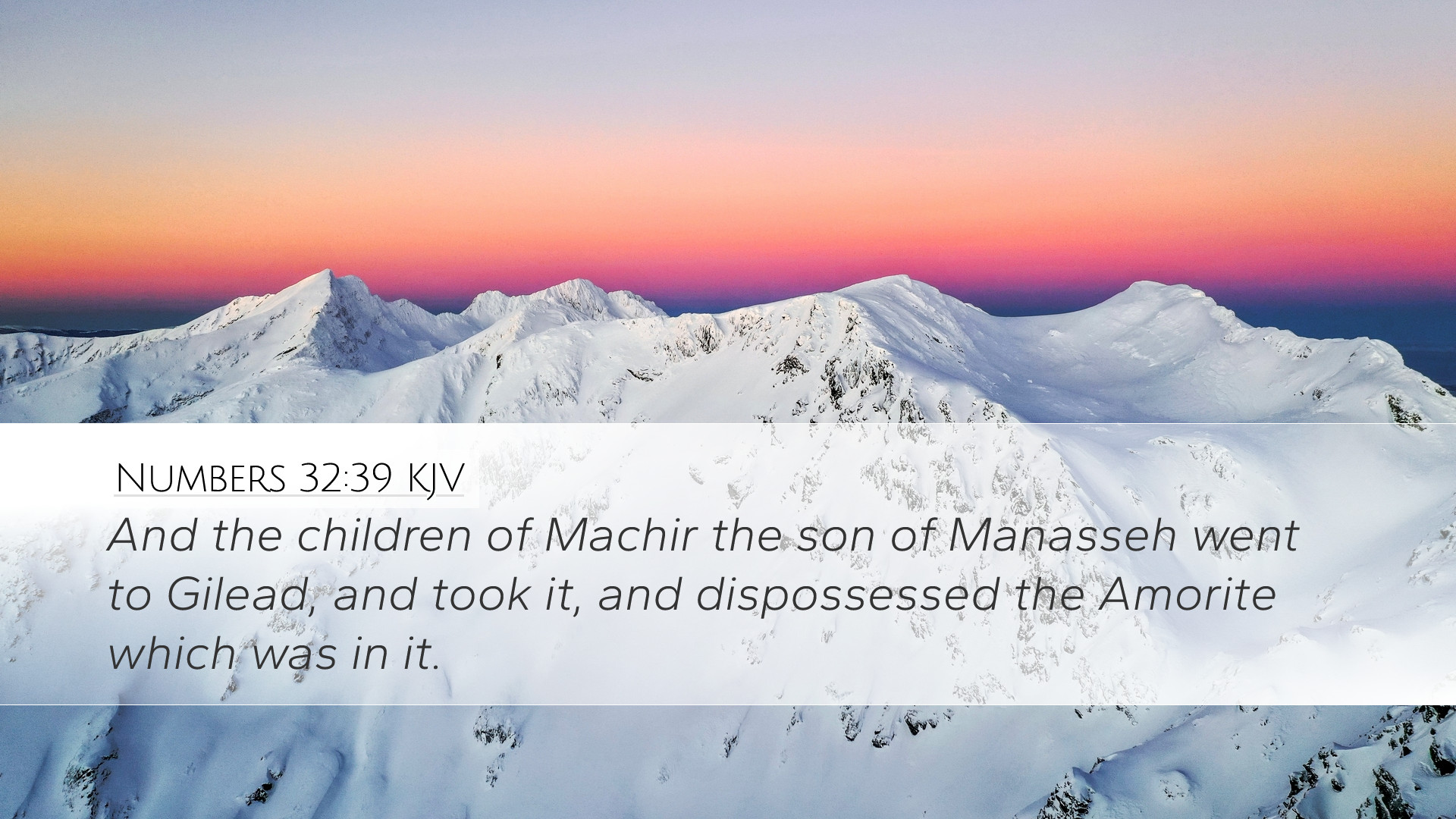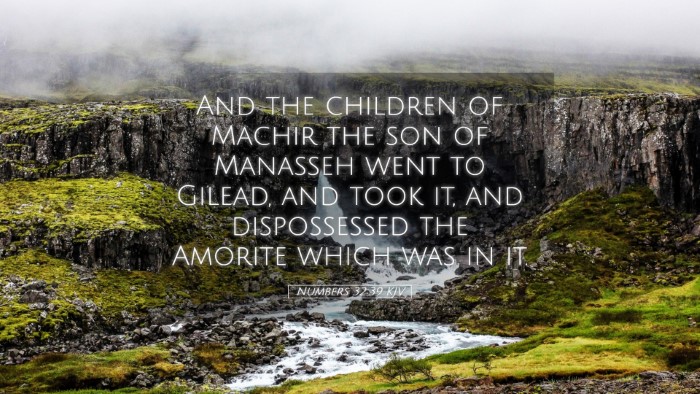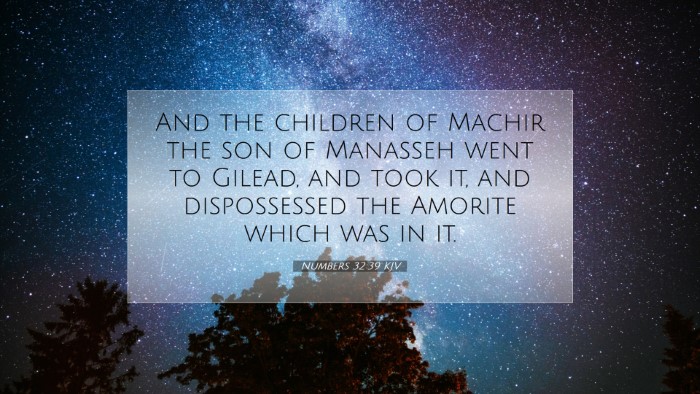Commentary on Numbers 32:39
Verse: "And the children of Machir the son of Manasseh went to Gilead, and took it, and dispossessed the Amorites which were therein." (Numbers 32:39, KJV)
Introduction
This verse captures a pivotal moment in the history of the Israelites as they approached the Promised Land. The actions of Machir, son of Manasseh, reflect both the fulfillment of God's promises and the ongoing struggle for territory amidst opposition. By surveying insights from multiple public domain commentaries, we gain a deeper understanding of the significance of this passage.
Contextual Background
The Book of Numbers is set during the period of the Exodus, detailing the Israelites' journey toward Canaan. The tribes of Reuben and Gad, along with half the tribe of Manasseh, had already expressed a desire to settle in the lands east of the Jordan River. This verse specifically references the actions of Machir and highlights the military endeavors undertaken by these tribes to claim their inheritance.
Historical Significance
As noted by Matthew Henry, this instance represents a decisive moment in which the people of God engage in conflict to secure their divinely ordained inheritance. It shows not only the fulfillments of God’s promises but also exemplifies the necessary struggles the Israelites had to engage in to see those promises materialize.
- Machi's Leadership: Machir, as a son of Manasseh, demonstrates the leadership qualities and military vigor needed to conquer Gilead.
- Divine Mandate: The dispossession of the Amorites aligns with God's command that the Israelites take possession of the land He promised to Abraham’s descendants.
- The Nature of Conflict: The conflict with the Amorites serves as an allegory for the spiritual battles Christians face today to claim their own inheritance in Christ.
Theological Insights
Albert Barnes provides essential theological reflections on this passage. He emphasizes that the act of taking Gilead reflects both God’s enablement of His people and their obedience in action. The active participation of the Israelites in possessing the land signifies that while salvation is a gift from God, it also requires human cooperation and effort.
Lessons on Faith and Action
Commentators also point out that faith without works is dead (James 2:26). The act of Machir and his children serves as a tangible display of faith expressed through action. They did not merely wait for the land to fall into their laps but took initiative, which believers are called to do in their spiritual journeys.
Application for Today
The struggles faced by the Israelites resonate with the struggles believers encounter in their lives. The good land of Christian living entails both promise and conflict. Just as Machir and his children had to engage in battle, Christians today must actively fight against spiritual adversaries (Ephesians 6:12). Our inheritance in Christ—like that of the Israelites—is secured through both God's faithfulness and our faithful response.
Practical Approaches
- Prayer and Warfare: Just as the Israelites needed both physical and spiritual weaponry, believers should engage in prayer as a means of contending for their spiritual inheritance.
- Community Engagement: Machir’s actions remind us of the importance of communal efforts in faith; believers should work together to encourage and support one another in the faith.
- Perseverance: Joining in the battle will often require endurance and perseverance, as highlighted in Romans 5:3-5, cultivating character and hope through trials.
Conclusion
In summary, Numbers 32:39 acts as a profound reminder of the interplay between divine promise and human action. The commentaries of Matthew Henry, Albert Barnes, and Adam Clarke collectively illuminate the responsibilities believers have in progressing toward their spiritual inheritance. Just as the Israelites had to engage courageously in the battle for Gilead, so too are Christians called to pursue righteousness and claim the fullness of their inheritance in the Kingdom of God.


